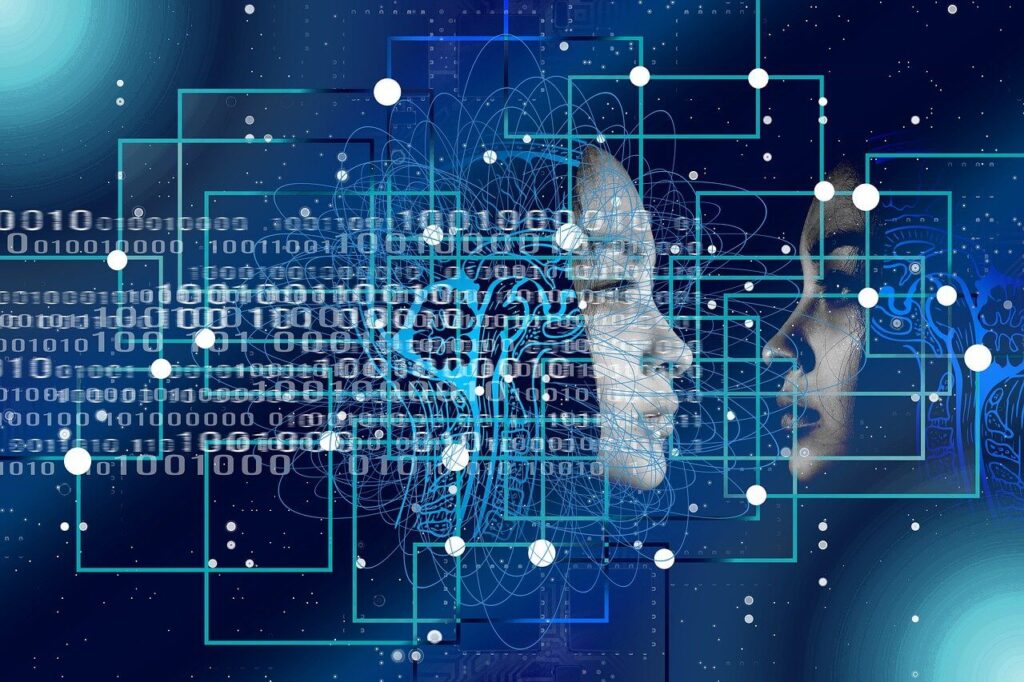The Role of AI in Business and Computer IT

In today’s rapidly evolving technological landscape, the integration of Artificial Intelligence (AI) has revolutionized the way businesses operate and how computer Information Technology (IT) is managed. From automating repetitive tasks to enabling data-driven decision-making, AI has become an indispensable tool across industries. This article delves into the multifaceted role AI plays in business and computer IT, highlighting its significance, applications, and potential challenges.
The Role of AI in Business and Computer IT
Artificial Intelligence (AI) is reshaping the business landscape and computer IT in unprecedented ways. Its impact is visible across various sectors, providing innovative solutions and streamlining operations.
Enhancing Customer Experiences
AI-powered chatbots and virtual assistants are redefining customer interactions. By analyzing customer data and providing personalized responses, businesses can offer real-time support, enhancing customer satisfaction.
Data Analysis and Decision-making
AI algorithms can process vast amounts of data at incredible speeds, enabling businesses to make informed decisions. Through predictive analytics, AI identifies patterns and trends, aiding in strategic planning and risk assessment.
Automation of Repetitive Tasks
One of AI’s most significant contributions is automating mundane and repetitive tasks. This not only increases efficiency but also allows employees to focus on higher-value tasks that require creativity and critical thinking.
Supply Chain Optimization
AI optimizes supply chain management by forecasting demand, tracking inventory levels, and identifying potential disruptions. This leads to reduced costs, improved logistics, and seamless operations.
Fraud Detection and Security
AI algorithms analyze user behavior and transaction patterns to identify anomalies that might indicate fraud. This plays a crucial role in safeguarding financial transactions and sensitive data.

Personalized Marketing Campaigns
By analyzing consumer behavior and preferences, AI facilitates the creation of targeted marketing campaigns. This approach enhances customer engagement and increases the effectiveness of marketing efforts.
Natural Language Processing (NLP)
NLP enables machines to understand and process human language. This technology is used in chatbots, translation services, and sentiment analysis, improving communication and understanding.
Healthcare Innovations
AI-driven diagnostic tools, predictive modeling, and drug discovery are transforming the healthcare industry. AI can analyze medical data to identify diseases at an early stage and suggest personalized treatment plans.
Smart Manufacturing
AI-driven automation in manufacturing leads to efficient production processes and reduced downtime. Predictive maintenance helps prevent machinery breakdowns, ensuring continuous operations.
START YOUR BRIGHT FUTURE WITH OUR ONLINE DIPLOMA PROGRAMMES, WHICH ARE TAUGHT BY TOP-TIER INDUSTRY PROFESSIONALS.
Financial Trading
AI algorithms analyze market data and trends to make rapid trading decisions. This technology has revolutionized financial trading by executing trades with precision and speed.
Challenges of AI Implementation
While AI offers numerous benefits, its implementation comes with challenges:
- Data Privacy: Handling large amounts of data raises concerns about privacy and security.
- Bias and Fairness: AI systems can inherit biases present in their training data, leading to unfair outcomes.
- Lack of Human Touch: Automated interactions can lack the personal touch that human interactions provide.
- High Initial Costs: Implementing AI infrastructure and training models can be expensive initially.
- Job Displacement: Automation may lead to job displacement, requiring reskilling and upskilling of the workforce.
- Ethical Considerations: AI raises ethical questions, such as the responsibility of AI in decision-making.
Faqs
AI may automate certain tasks, leading to job displacement in some areas. However, it also creates new roles in AI development, data analysis, and more.
While AI can mimic certain creative tasks, human creativity remains unmatched. AI often enhances creative processes by providing insights and assistance.
No, AI benefits businesses of all sizes. Small businesses can use AI for customer engagement, data analysis, and process automation.
Industries such as healthcare, finance, e-commerce, and manufacturing are rapidly adopting AI to streamline operations and improve outcomes.
AI can detect unusual patterns in data that may indicate security breaches or fraud. It enhances data security through real-time monitoring.
AI makes decisions based on patterns and data it has been trained on. It lacks consciousness and independent thinking like humans.
Conclusion
The role of AI in business and computer IT is transformative, shaping the way organizations operate and innovate. From enhancing customer experiences to driving data-driven decisions, AI’s potential is boundless. While challenges exist, the benefits of AI adoption far outweigh the drawbacks. As technology continues to advance, the seamless integration of AI into various industries will undoubtedly lead to a more efficient, intelligent, and interconnected future.
